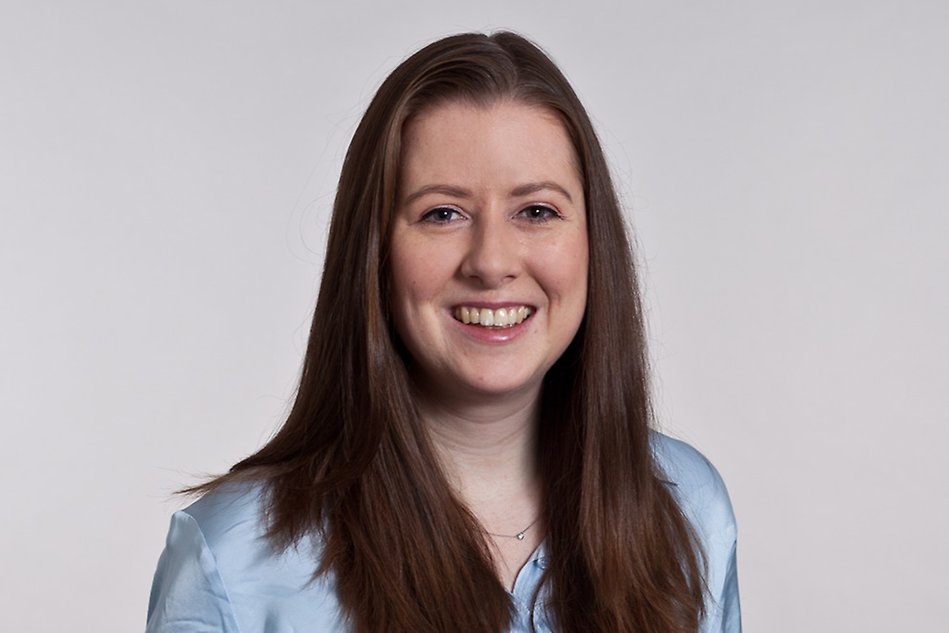Halmstad University PhD-student part of Fraunhofer TALENTA programme
Hi there Lisa Klug, PhD-student in Innovation Science! You have recently been accepted to the Fraunhofer TALENTA programme. What is the program about and why did you apply?
“The TALENTA programme is offered by my employer, Fraunhofer. It is a support and development programme for female scientists and managers in technical disciplines. By being selected for TALENTA, I now receive time and a budget that I can use to achieve my own career goal. This gives me the freedom to develop my career in applied research. The funding period is two years and is accompanied by networking meetings with other TALENTA participants.”
“By being selected for TALENTA, I now receive time and a budget that I can use to achieve my own career goal. This gives me the freedom to develop my career in applied research.”
Lisa Klug, PhD-student in Innovation Science
Could you tell us more about what you do?
“I’m a PhD-student at Halmstad University and a research associate at Fraunhofer in Germany. With around 30,000 employees, the Fraunhofer-Gesellschaft is the largest organisation for applied research and development services in Europe.”
“The purpose of the organisation is to conduct application-oriented research for the direct benefit of companies and for the benefit of society. The Fraunhofer-Gesellschaft currently operates 76 institutes, and I work at Fraunhofer FIT, which is the Fraunhofer Institute for Applied Information Technology.”
What is your area of research?
“My research area is Innovation Science. I am working on digitalisation with blockchain and how we can better support companies in adopting blockchain. In this area, there is currently a focus on "web3", which is a new generation of internet based on blockchain technology and concepts such as decentralisation and token-based economy. It's really fascinating to see how something like this is evolving.”
“I'm involved in a project called Blockchain Reallabor, where we accompany companies in digitising their business processes with blockchain and help them to create viable web3 business models.”

Lisa Klug is a PhD student at Halmstad University and research assistant at Fraunhofer in Germany. Photographer: Magnus Karlsson
Why did you choose to do your doctoral education at Halmstad University?
“I'm from Cologne, Germany. I started my working life as an industrial engineer in a sensor technology company. There I got a broad insight into different areas of the company. In addition, I have spent several periods of time abroad and I am still very interested in living in a foreign country. Because of that, I decided to do my master's in Halmstad.”
“I chose to study Industrial Management and Innovation. The field is incredibly exciting for me, and after the master's I knew that I wanted to continue working in science. I started working at Fraunhofer, and a few months later I started the industrial PhD in Halmstad.”
“The great mentoring by my professors convinced me already during my master’s studies, so Halmstad was my preferred university for the PhD. It is also very interesting to compare how companies in Sweden and Germany deal with innovation.”
“Being an industrial PhD student is an ideal model for me because I can not only do research in the field of innovation, but also implement the results in projects and have a close exchange with the industry. And I can live and work in two different countries.”
What does it mean to you to be part of the Fraunhofer TALENTA programme?
“As an industrial PhD student, I sometimes face the challenge of balancing my professional life with the demands of my PhD. Fortunately, my day-to-day work is already quite research-oriented, but nevertheless the TALENTA funding gives me more freedom to shape my own activities. I will use the funding to be in Halmstad more often and to further my scientific activities. In addition, I will use the qualification budget to attend certain summer schools and conferences - without the budget this would not be so easy. I am therefore very grateful for the TALENTA grant.”

